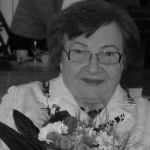Faculty of Humanities
The Faculty of Humanities is comprised of four units: the Institute of Polish Philology, the Institute of History, the Institute of Librarianship and Journalism and the Institute of Foreign Languages.
Currently, the Faculty has the right to confer doctoral degrees in the disciplines of history and literary studies, and postdoctoral degrees (doctor habilitated) in the discipline of history. The Faculty employs 17 professors ordinary, 32 professors extraordinary, 11 readers holding a degree of doctor habilitated, 65 readers holding a doctor’s degree, 4 assistants, 13 senior lecturers and 4 lecturers.
The Faculty runs courses in 7 fields of study and several areas of specialisation. All fields of study which were assessed by the State Accreditation Committee received a positive assessment. We also run doctoral studies in the field of history, linguistics and literary studies. Postgraduate courses are also available.
History:
The Faculty of Humanities came into being on 28 June 1969, when The Minister of Education and Higher Education issued a directive establishing a Teacher Training College in Kielce. At that time the Faculty offered only two fields of study: Polish Philology with History and Russian Philology. The Faculty was situated on the premises of the former secondary (Liceum Pedagogiczne) and later postsecondary school of pedagogy (Studium Nauczycielskie) at 16 Leśna Street.
On 29 September 1973, the Council of Ministers issued a directive transforming the Teacher Training College into the Higher School of Pedagogy, which was to train teachers to work in primary, secondary, vocational and secondary vocational schools. The transformation launched a new stage of Faculty development: new staff members were employed, new divisions created, and attention was focused on the development of research and teaching personnel. In October 1979 the school was named after Jan Kochanowski, a great Polish Renaissance poet. This clearly stressed the role of the humanities in the assumed educational profile. At that time attempts were made to get authorisation to award scientific degrees making the development of Faculty personnel easier and quicker. In 1989 The Faculty Council gained the right to confer doctoral degrees in the discipline of history and in 1998 in the discipline of linguistics.
In 2000 the Higher School of Pedagogy was transformed into the Świętokrzyska Academy and new, non-pedagogical fields of study were created. Due to a notable increase in the number of senior research fellows in the Institute of History, the Faculty obtained authorisation to grant the degree of doctor habilitated in the discipline of history. On 1 October 2003, the first edition of the full-time doctoral course in the discipline of history was launched (The Directive of the Rector of Świętokrzyska Academy 9/2003 of 27 February 2003).
In 2008 the Świętokrzyska Academy was transformed into the Jan Kochanowski University of Humanities and Sciences. The new name indicated the significance of the humanities in the University curriculum. In October 2008 another full-time doctoral course was launched in the field of linguistics – (The Directive of the Rector of Jan Kochanowski University of Humanities and Sciences 62/2008 of 26 November 2008). In 2011 the University met all the formal standards necessary for gaining the status of a classical university and on 1 October 2011 it was transformed into the Jan Kochanowski University. The Faculty of the Humanities made efforts to obtain authorisation to grant doctoral degrees in new disciplines, and consequently the University was authorised to confer doctoral degrees in literary studies in October 2012. The 2013/2014 academic year saw the launch of doctoral studies in this discipline (The Directive of the Rector of Jan Kochanowski University 14/2013 of 21 March 2013), as well as graduate studies in Journalism and Social Communication and philology with a specialisation possible in English Philology. Undergraduate studies were also launched in Military History.
Currently offered degree courses:
- History (BA studies; specializations: History and Culture of English Speaking Countries, Protection and Promotion of Cultural Heritage; Teaching); MA studies (specializations: Cultural History and Preservation, Academic Editing, Teaching); PhD studies, Postgraduate courses.
- Heritage Tourism Organisation (BA studies; specializations: European and Mediterranean Tourism; International Tourism);
- Military History (BA studies; specializations: Military Security in the Contemporary World, Military Cultural Heritage)
- Social Sciences (postgraduate studies)
- Archive Studies (postgraduate studies);
- Library and Information Science (BA studies);
- Journalism and Social Communication (BA and MA studies) – Press Journalism, Radio Journalism, Internet Journalism.
- Philology (BA studies: Russian Philology with Translation, Russian in Business, German Philology – International Tourism Communication, English Philology)
- Philology (MA studies, regular and weekend studies: English Philology with Translation English Philology – Teaching Specialty , Russian Philology with Translation; weekend studies only – Russian in Business).
- Polish Philology (BA studies – with English, with Logopedics; non-teaching specializations: publishing and editing, media communication; MA studies: Teaching specialty, non-teaching specializations: Culture Management, Media and Advertising, Journalism, Shaping Public Relations through Language)
- Logopedics (postgraduate course)
- Doctoral studies: history, linguistics, literary studies.





